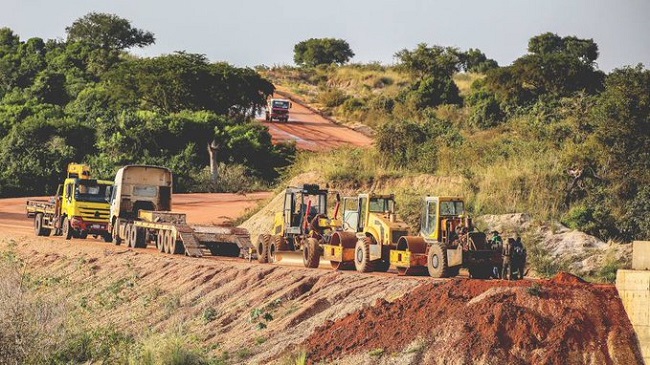On Wednesday, April 13, 2022, affected community members and climate activists from Uganda, Tanzania and concerned nations held a People’s Annual General Meeting to highlight the dangers of the proposed East African Crude Oil Pipeline (EACOP) and called on financial institutions to commit not to fund the pipeline.

The pipeline has faced continued opposition from communities and climate activists, citing threats to the environment and livelihoods of communities in the area.
During the AGM, community members shared experiences of displacement, human rights abuses, threats to livelihoods and sensitive ecosystems linked to the pipeline, with attendees drawn from across the globe.
Following pressure from the groups and affected communities calling for a stop to the flow of finance into the project, 15 commercial banks and seven major (re)insurers have distanced themselves from the project so far.
Landry Ninteretse, 350Africa.org Regional Director, said: “The impacts of building the East African Crude Oil Pipeline (EACOP) will be devastating for our communities, for wildlife and for the planet. Affected communities and activists across East Africa and beyond are strongly speaking up against that ill-advised project and calling for massive investments in alternative sources of energy that are not only safe for the people, their livelihoods and the climate, but can also create jobs and income for locals.
“While many private banks and re-insurers have already distanced themselves from this controversial project, indicating they will not be supporting it, together we can put pressure on other financial institutions that have not taken a stand against the pipeline, to do so. At a time when science indicates that we should be moving away from any new fossil fuel project, moving ahead with a project like EACOP is exacerbating Africa’s fossil fuel trap.”
Omar Elmawi, #StopEACOP coordinator, said: “As communities in Uganda and Tanzania continue to fight tirelessly against the planned EACOP pipeline and the trail of destruction it is already leaving in its wake, the interests of the fossil fuel industry continue to take precedence, at the expense of the local communities and the environment.
“Financial institutions should realise that funding this project is tantamount to fuelling the climate crisis at a time when Africa is suffering from adverse impacts of the same. It is time that these voices of the affected were heard and action taken to heed the call to stop the flow of finance into EACOP and instead redirect finance towards clean energy.”
Diana Nabiruma of the Africa Institute for Energy Governance said: “If EACOP goes ahead, it will be allowing those who are seeking to profit at the expense of humanity to do so, while destroying our environment. We must engage our governments and financial institutions to ensure that we not only protect our environment but also safeguard the rights and interests of the people through promoting green industries and jobs, not oil.”
Nnimmo Bassey, Director, Health of Mother Earth Foundation (HOMEF), who was a panelist, said: “The oil economy hasn’t trickled down to the citizens living in the oil field communities of the Niger Delta in Nigeria. With the world moving away from fossil fuels dependency, citizens and the environment will receive less attention as nations race to squeeze out the last drops of oil. Oil mostly benefits governments and oil companies. The massive pollution of the Niger Delta has decimated biodiversity, poisoned the water bodies as well as the land. Uganda will not be an exception.
“With the war in Europe, focus will unfortunately shift to African countries to meet their oil and gas demands. This will ultimately place Africa in the pathway to stranded assets as the continent will get hooked on the thoughts of getting revenue from the resources rather than investing in renewable energy. EACOP is a bad idea and should be nipped in the bud.”
